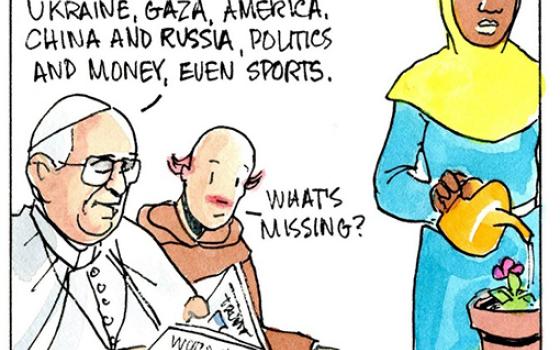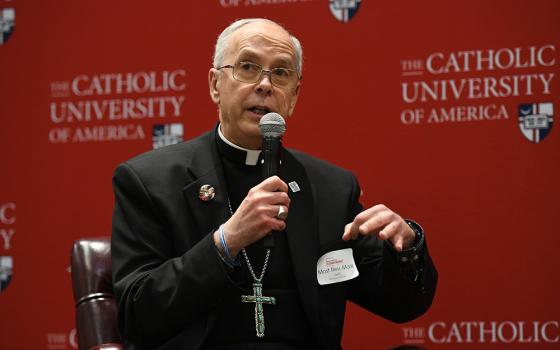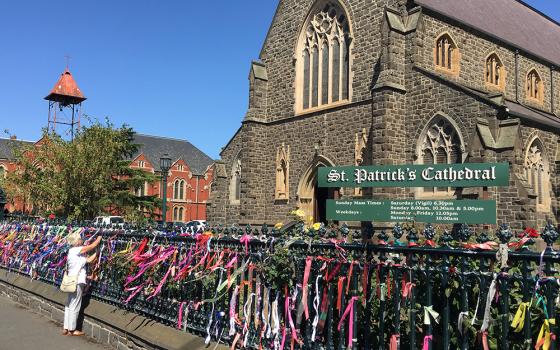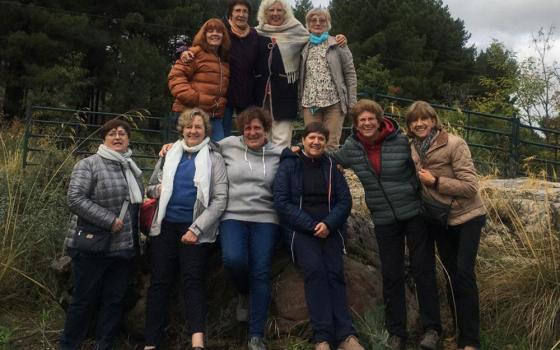"The climate," wrote Pope Francis in his encyclical "Laudato Si', on Care for Our Common Home," "is a common good, belonging to all and meant for all."
That is an elevated sentiment, an unusual expression of global ownership of something that, simultaneously, we are individually incapable of possessing but collectively must take ownership of if we are interested in preserving creation. In simplest form, Francis states throughout the encyclical that the deleterious effects of climate change can only be ameliorated by a vast communal effort.
Francis brings us to a point of moral and pragmatic clarity — as Catholics and as citizens of the world and, in the case of the United States, as citizens of a country that leads all others in consumption of natural resources and is second only to China in producing pollutants that harm the atmosphere. We must begin to act differently, to live differently, and to think differently about the Earth and our relationship to it.
Another moment of clarity is upon us with the election of Donald Trump as president. It is clear he has disdain for those warning of human causes of climate change, dismissing as a hoax the preponderance of evidence compiled by an overwhelming majority of the world's most distinguished scientists and scientific organizations.
More: "COP22 gets underway with cautious statements about Trump's climate ideas" (Nov. 11, 2016)
On the campaign trail, he promised, as part of his first 100 days in office, to:
- Lift restrictions on the production of the country's shale, oil, natural gas and clean coal energy reserves;
- Greenlight the development of new pipelines, inviting a resubmission of the Keystone XL transnational pipeline;
- Cancel billions in payments to U.N. climate change programs;
- Pull the United States out of such pacts as the Paris Agreement, and perhaps even the U.N. Framework Convention on Climate Change, which the nation entered in 1992 under the signature of President George H.W. Bush.
Given the volatility of President-elect Trump, it is unclear which of those promises he intends to keep and which may be forgotten. Already, he told The New York Times he'll "keep an open mind" about the Paris accord. But the danger here is not only Trump but the path he gives Republicans who retain control of the House and Senate. Republicans, and the business interests to which they are owing, have long wished to remove all restrictions on the development of fossil fuels. Congressional Republicans have laid their plans and are ready implement them.
Catholics have the opportunity and the obligation on this issue to amplify Francis' voice in the public square, to bring his point of clarity to the discussion. The U.S. bishops have written public letters to the Environmental Protection Agency and Congress supporting rules on curbing carbon pollution from gas- and coal-fired power plants. The U.S. bishops also joined a global statement with fellow bishops' federations on six continents urging climate action ahead of COP21, which resulted in the Paris Agreement — a binding deal among all nations to address climate change.
Catholic groups, like Catholic Climate Covenant, Franciscan Action Network and numerous congregations of women religious, have been active in not only supporting these policies but also in encouraging their members and other Catholics to take steps of their own — such as installing solar, divesting from fossil fuels, taking energy-efficiency measures, making lifestyle changes and engaging in local environmental efforts.
We would urge Catholics, given the stark words of Francis and his bishops, to contact members of Congress to voice support for these programs, now more than ever. Similar steps include urging responsible choices at the EPA, the Interior Department and the Energy Department, and advocating clean energy policies before it is too late.
The vast communitarian effort that Francis says is necessary is, in many ways, in process. Those most likely to be affected also happen often to be the most vulnerable. Now is not the time for the United States to disengage from international commitments that tie our fate to that of others. The Catholic community has an essential and potentially influential voice to raise in defense of creation.



